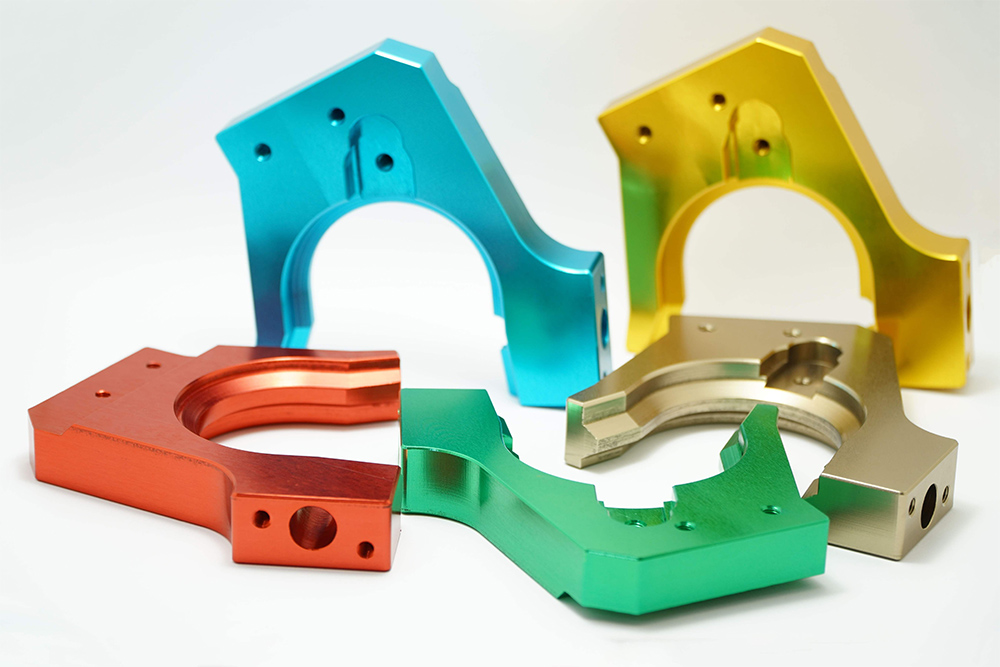What are Custom CNC Milling Parts Manufacturers?
custom cnc milling parts manufacturers specialize in producing precision components through Computer Numerical Control (CNC) machining processes. These manufacturers utilize advanced multi-axis milling machines (typically 3-axis to 5-axis configurations) with positioning accuracy reaching ±0.005mm and repeatability of ±0.002mm. The process involves subtractive manufacturing where rotating cutting tools remove material from a workpiece to create complex geometries with surface finishes as fine as Ra 0.4μm. Modern CNC mills operate at spindle speeds up to 50,000 RPM and feed rates exceeding 20 m/min, enabling efficient production of high-tolerance parts from various materials including metals, plastics, and composites.

Material Versatility: Capable of machining over 200+ engineering materials including aluminum alloys (6061, 7075), stainless steels (304, 316), titanium (Grade 2, Grade 5), and engineering plastics (PEEK, Delrin)
Precision Capabilities: Achieve dimensional tolerances as tight as ±0.001" (0.025mm) for critical features and ±0.0002" (0.005mm) for precision ground surfaces
Surface Finish Options: From rough machined (Ra 3.2μm) to mirror finishes (Ra 0.1μm) through secondary operations
Production Capacity: Rapid prototyping with lead times as short as 24-48 hours, and production runs exceeding 100,000+ units annually
Quality Assurance: Equipped with ISO 9001:2015 certified quality systems and advanced metrology equipment including CMMs with 0.5μm resolution
Applications of Custom CNC Milled Components
Aerospace Industry
CNC Milling produces critical aerospace components including turbine blades with cooling channels (maintaining wall thicknesses of 0.3-0.5mm), aircraft structural members with weight reduction pockets, and satellite components that must withstand temperature extremes from -270°C to +300°C. Typical materials include titanium alloys (Ti-6Al-4V) with ultimate tensile strength exceeding 1000 MPa and aluminum-lithium alloys offering 7-10% weight reduction compared to conventional alloys.
Medical Device Manufacturing
Surgical instruments and implants require biocompatible materials like ASTM F136 titanium or 316LVM stainless steel machined to tolerances of ±0.0005" for proper fit. CNC mills create complex orthopedic implants with porous surfaces (pore sizes 200-500μm) to promote bone ingrowth, and dental components with 5-axis simultaneous machining for accurate occlusal surfaces.
Automotive Sector
High-performance engine components like cylinder heads are machined to maintain combustion chamber volumes within ±0.5cc specifications. Transmission parts require gear tooth profiles with profile deviations less than 0.005mm. Electric vehicle battery housings utilize large-format CNC milling (up to 4m x 2m work envelopes) for aluminum enclosures with coolant channels maintaining 0.1mm wall uniformity.
Electronics and Semiconductor
CNC milling produces vacuum chamber components with leak rates below 1×10-9 mbar·L/s, and wafer handling equipment with positional accuracy of ±1μm over 300mm travel. RF waveguide components require surface finishes better than Ra 0.8μm to minimize signal loss at frequencies up to 110 GHz.
Maintenance Procedures for CNC Milling Equipment
Daily Maintenance
Way Lubrication: Check oil levels in automatic lubrication systems maintaining 0.05-0.1 MPa pressure
Chip Removal: Clear chips from work area and coolant tanks to prevent recirculation of particles larger than 50μm
Tool Inspection: Measure tool runout (max 0.01mm TIR) and inspect cutting edges for chipping exceeding 0.1mm
Coolant Management:
Maintain concentration between
and pH level
Weekly Maintenance
Ball Screw Inspection: Check for backlash exceeding 0.005mm using dial indicators
Spindle Health: Monitor vibration levels (should remain below 1.5 mm/s RMS) and temperature rise (max 15°C above ambient)
Way Cover Maintenance: Clean and lubricate telescoping covers with ISO VG 32 way oil
Air Filter Replacement: Change when pressure drop exceeds 0.5 bar across the filter
Quarterly Maintenance
Axis Alignment Verification: Check squareness between axes within 0.005mm/300mm using precision squares and indicators
Coolant System Cleaning: Complete flush and replacement, removing all settled sludge (particles > 25μm)
Electrical Checks: Measure servo motor current draw (should not exceed 90% of rated capacity during peak loads)
Hydraulic Pressure Tests: Verify automatic tool changer systems maintain 40-60 bar operating pressure
Annual Maintenance
Linear Guide Replacement: When wear exceeds 0.02mm over 100mm travel
Spindle Bearing Regreasing: Follow manufacturer specifications (typically 2-5cc of high-speed bearing grease)
Control System Backup: Archive all machine parameters and CNC programs
Laser Calibration: Verify positioning accuracy using laser interferometers with 0.1μm resolution








